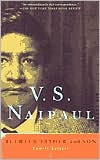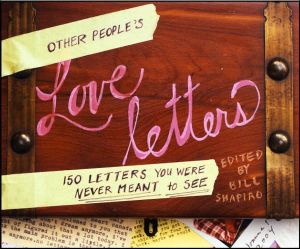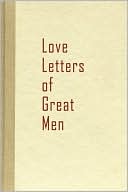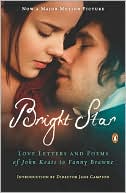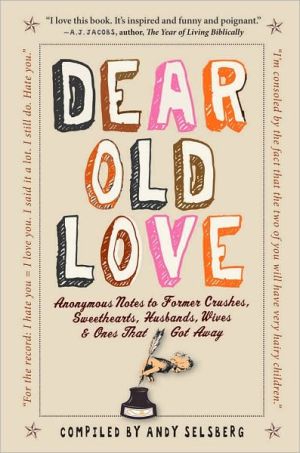Between Father and Son: Family Letters
At seventeen, V.S. Naipaul wanted to "follow no other profession" but writing. Awarded a scholarship by the Trinidadian government, he set out to attend Oxford, where he was encountered a vastly different world from the one he yearned to leave behind. Separated from his family by continents, and grappling with depression, financial strain, loneliness, and dislocation, "Vido" bridged the distance with a faithful correspondence that began shortly before the young man's two-week journey...
Search in google:
At seventeen, V.S. Naipaul wanted to "follow no other profession" but writing. Awarded a scholarship by the Trinidadian government, he set out to attend Oxford, where he was encountered a vastly different world from the one he yearned to leave behind. Separated from his family by continents, and grappling with depression, financial strain, loneliness, and dislocation, "Vido" bridged the distance with a faithful correspondence that began shortly before the young man's two-week journey to England and ended soon after his father's death four years later. Here, for the first time, we have the opportunity to read this profoundly moving correspondence, which illuminates with unalloyed candor the relationship between a sacrificing father and his determined son as the encourage each other to persevere with their writing. For though his father's literary aspirations would go unrealized, Naipaul's triumphant career would ultimately vindicate his beloved mentor's legacy.Publishers WeeklyThe origin of this book seems to be in a letter from Seepersad Naipaul to young Vido (or Vidia): "If you could write me letters about things and people--especially people--at Oxford, I could compile them in a book: Letters Between a Father and Son...." Although the correspondence (much of it with sister Kamla--in college in India--as third party) is presented as a portrait of the artist as a young man, it is not always a likable one, resonating with pathos more than prophecy of fame or literary accomplishment. The future novelist (A House for Mr. Biswas, etc.), a Trinidadian of Indian background on scholarship in England in 1950, has left behind a family of diminishing prospects and on the edge of penury. His father, a talented writer stuck in marginal local journalism, soon loses his job after a heart attack. His mother, to everyone's guarded embarrassment, becomes pregnant again. Vido is anguished about his family's condition (there are more young children at home), but knows that returning is suicidal to his ambitions. While he begins making it by selling short fiction to the BBC for overseas broadcast, the Naipauls deteriorate further with the death of Seepersad at 47, in 1953. In an epilogue, V.S. is tasting early success, far removed from the backwater of Trinidad. More memorable than the ambitious son, who is often consumed by anxiety, is the pragmatic father, who assures Vido that he will be "a great writer" and advises him to "beware of undue dissipation," but not to be "a puritan." A terse cable from Vido to his family on his father's death begins, "HE WAS THE BEST MAN I EVER KNEW.... " The family letters are Seepersad's memorial. (Jan.) Copyright 1999 Cahners Business Information.
Home, 9/22/50\ \ Dear Son,\ \ Your letter of September 17 we got yesterday. It has made me both happy and -- to some extent sad. I thought that when Simbhoo arrived he would be bringing you and Boysie cheer; that he would make the place a little more like home, with jokes and sightseeing and so on. I should not mind if letters do not come very frequently sometimes. You say Kamla has not written you; and Kamla says you have not written her. You write her and try to be kind in your letter. Kamla is only too anxious to hear from you as well as to write you. She probably did not know your address.\ \ I have not failed with my developing outfit. The very first try was a success. I cannot enclose photos with this or else I would have shown you specimens. One photo of my developing I have sent to Kamla. It is Shivan and Baido. A cute little snap. What I need now is a printer -- you know, the equipment on which negatives are printed. Another humbug lies in the fact that I cannot get the right printing paper. Johnsons of Hendon Ltd, London, NW4, have plastic printing frames; more than this, they carry what\ they call a new Exactum Printer; also they stock gas-light printing paper of all grades. On this paper printing can be done with daylight. They are very cheap. See if you can send a few packets for me, for negatives, size 120. Also contact printing paper, grades vigorous, soft and normal. Tell the people the kind of camera I have, and they should give you the right stuffs for printing.\ \ The Guardian paid me only $5 for the two Ramadhin pictures; and five dollars for the story in the Sunday Guardian. Before these I think I got$3 for the uncle-aunt picture that came out in the sports page of TG. But my rice-growing story in the Weekly carried four pictures. They should bring me in at least $12, but of course you never know with these people.\ \ I have not heard anything further on your poem. You know it has been sent up to London by Mrs Lindo. And I haven't heard more about 'Obeah' and 'The Engagement', which, like your poem, have been sent up; and acknowledged as having been received and retained for possible future broadcasting. Wait and see.\ \ Your writings are all right. I have no doubt whatever that you will be a great writer; but do not spoil yourself: beware of undue dissipation of any kind. I do not mean you must be a puritan. A pity you spent some money badly re meeting Simbhoo; but such things will happen. It was gratifying to hear you could send us some money but everything is all right just now. Are you keeping a savings account? Yes, I think you do; I think you mentioned the fact in a previous letter. S. used to also say some such things to Rudranath when the latter had won his scholarship. I remember S's spirited objection and umbrage. You keep your centre. You are on the way to being an intellectual. He is only stating a fact. Acknowledge it mentally as such. Say, 'Thanks.'\ \ I never had so much work as I am having nowadays. I hope I shall be able to keep up. I am no longer on the Evening News. They have shifted me to the Guardian. Since last Monday -- General Election day -- I have been working, at a stretch almost, from early morning to late night -- nine and ten at nights. Don't see how I can find the time to do features for the Weekly. Even this letter I write at a snatch. I was asked to write a feature on faith-healing at about 12.30 yesterday; and I had to turn out the stuff first thing in the morning. The faith-healer's meeting that I was to describe actually never finished till midnight. This was last night. But I have turned in the story. What is strange is that I think it will be a good story -- snappily written.\ \ I like your decision to write weekly. I think I can easily manage writing once a fortnight providing the air-letter form is at hand! And providing that the letter, having been written, gets posted!\ \ I haven't bought the tyre. It will get bought when it comes to my not being able to go out -- unless I had one. Like buying the battery. Let us know what is happening. Tell me about the fate of the poems you have sent in, and the stories. And don't worry about anybody or anything here.\ \ No fear; we received all your letters. Only I find they took a long time in the coming. Once three letters, differently dated, came in a batch. Altogether we've got seven letters from you from the day you left home; plus a cable.\ \ No harm in kissing a girl, so long you do not become too prone for that sort of thing.\ \ Love from everybody,\ Naipaul
IntroductionviiFamily TreesxiiiISeptember 21, 1949--September 22, 1950: Port of Spain to Oxford1IIOctober 5, 1950--January 1, 1951: First Term at Oxford21IIIJanuary 1, 1951--April 11, 1951: Lent Term, Easter Vacation47IVApril 14, 1951--September 13, 1951: Spring Term, Long Vacation81VSeptember 20, 1951--January 8, 1952: Michaelmas Term, Christmas Vacation117VIJanuary 16, 1952--April 4, 1952: Lent Term, Easter Vacation139VIIApril 21, 1952--September 28, 1952: Spring Term, Long Vacation169VIIIOctober 3, 1952--August 8, 1953: Final Year199IXAugust 10, 1953--December 8, 1953: Family Tragedy245Postscript: May 3, 1954--June 20, 1957 The Writer275Bibliography of Published Works289Index291
\ Publishers Weekly\ - Publisher's Weekly\ The origin of this book seems to be in a letter from Seepersad Naipaul to young Vido (or Vidia): "If you could write me letters about things and people--especially people--at Oxford, I could compile them in a book: Letters Between a Father and Son...." Although the correspondence (much of it with sister Kamla--in college in India--as third party) is presented as a portrait of the artist as a young man, it is not always a likable one, resonating with pathos more than prophecy of fame or literary accomplishment. The future novelist (A House for Mr. Biswas, etc.), a Trinidadian of Indian background on scholarship in England in 1950, has left behind a family of diminishing prospects and on the edge of penury. His father, a talented writer stuck in marginal local journalism, soon loses his job after a heart attack. His mother, to everyone's guarded embarrassment, becomes pregnant again. Vido is anguished about his family's condition (there are more young children at home), but knows that returning is suicidal to his ambitions. While he begins making it by selling short fiction to the BBC for overseas broadcast, the Naipauls deteriorate further with the death of Seepersad at 47, in 1953. In an epilogue, V.S. is tasting early success, far removed from the backwater of Trinidad. More memorable than the ambitious son, who is often consumed by anxiety, is the pragmatic father, who assures Vido that he will be "a great writer" and advises him to "beware of undue dissipation," but not to be "a puritan." A terse cable from Vido to his family on his father's death begins, "HE WAS THE BEST MAN I EVER KNEW.... " The family letters are Seepersad's memorial. (Jan.) Copyright 1999 Cahners Business Information.\ \ \ \ \ Library JournalIn 1949, at age 17, Naipaul left Trinidad for Oxford University. Here, Aitken has collected Naipaul's correspondences with his family from those years. The letters provide a lively account of Naipaul's evolution as a writer--"I am afraid I have become a writer," he declares at one point--but they also reveal him to be an eccentric, arrogant, and self-absorbed malcontent. He chastises his older sister and his parents for their faults, demands money from them, and boasts of his successes as a writer without mentioning or acknowledging family tragedies. In a postscript, Aitken also reprints a few later letters in which Naipaul celebrates the publication of his first novel and starts hinting at larger issues. "I don't see myself fitting into the Trinidad way of life," he writes. "I think I shall die if I had to spend the rest of my life in Trinidad." Still, only libraries needing a complete collection of Naipaul's writings will want to purchase this; otherwise, not recommended. [Previewed in Prepub Alert, LJ 9/1/99.]--Henry L. Carrigan Jr., Lancaster, OH Copyright 2000 Cahners Business Information.\ \ \ Anderson Tepper...nothing is quite as revealing—as the portrait evoked by this simple, unadorned collection of letters between a young Naipaul ("Vido"), his father, Seepersad, and his older sister, Kamla. Together, the letters create a picture as wrenching as any novel, as vivid as any film (I can already picture the Merchant/Ivory production), with a story line that skips between the Caribbean, England and India in the aftermath of war and independence.\ —Time Out New York\ \ \ \ \ Abraham Verghese'Between Father and Son'' is the record of an extraordinarily rich correspondence primarily between V. S. Naipaul (Vido in these letters) and his father, Seepersad Naipaul. It begins with Vido's arrival in England in 1950 and ends in 1953 with Seepersad's death...for V. S. Naipaul fans and particularly for future biographers and scholars, the correspondence is a treasure.\ —The New York Times\ \
